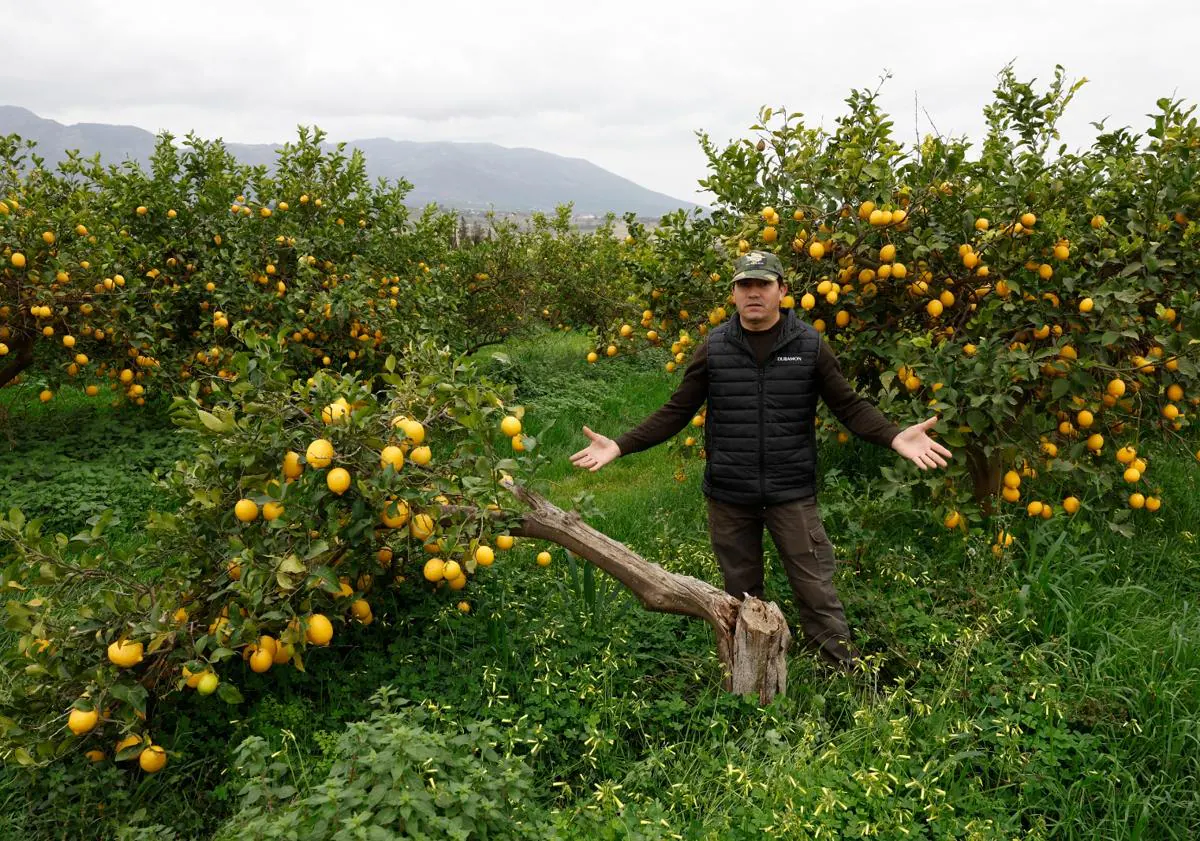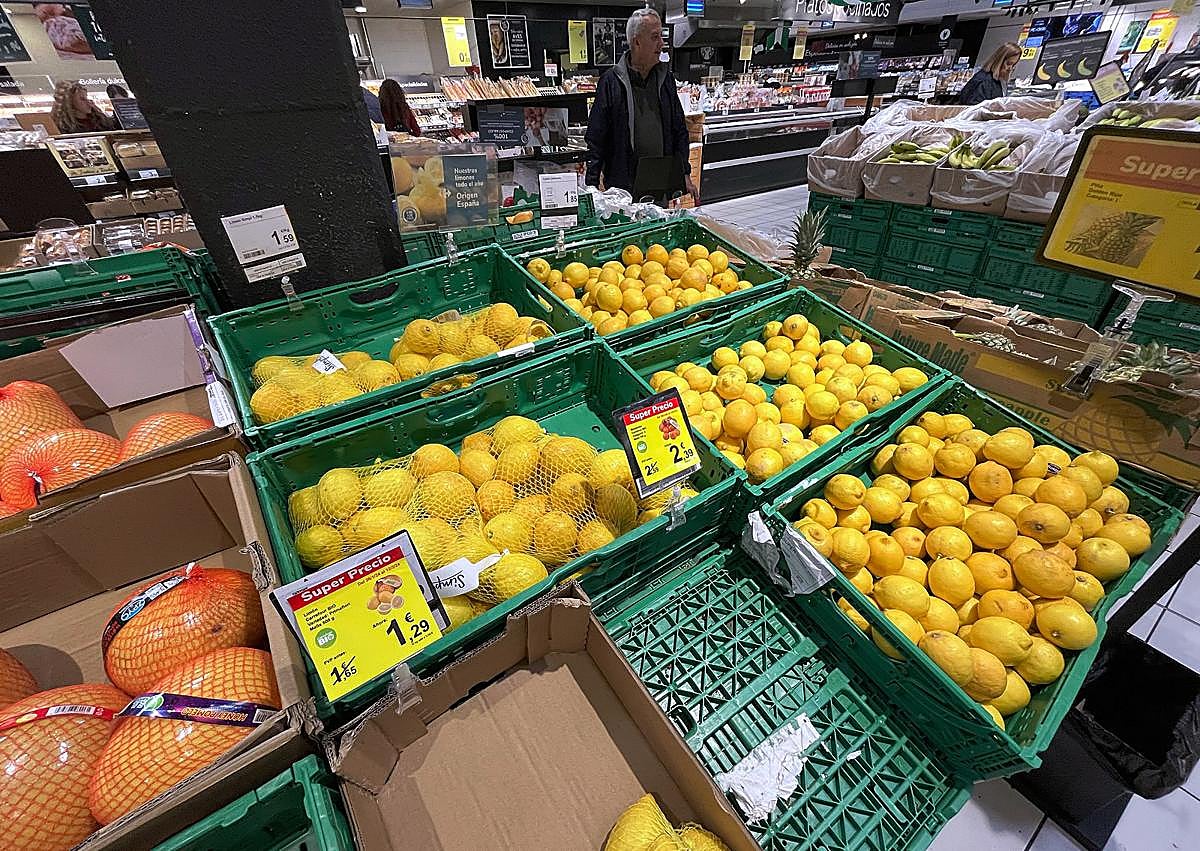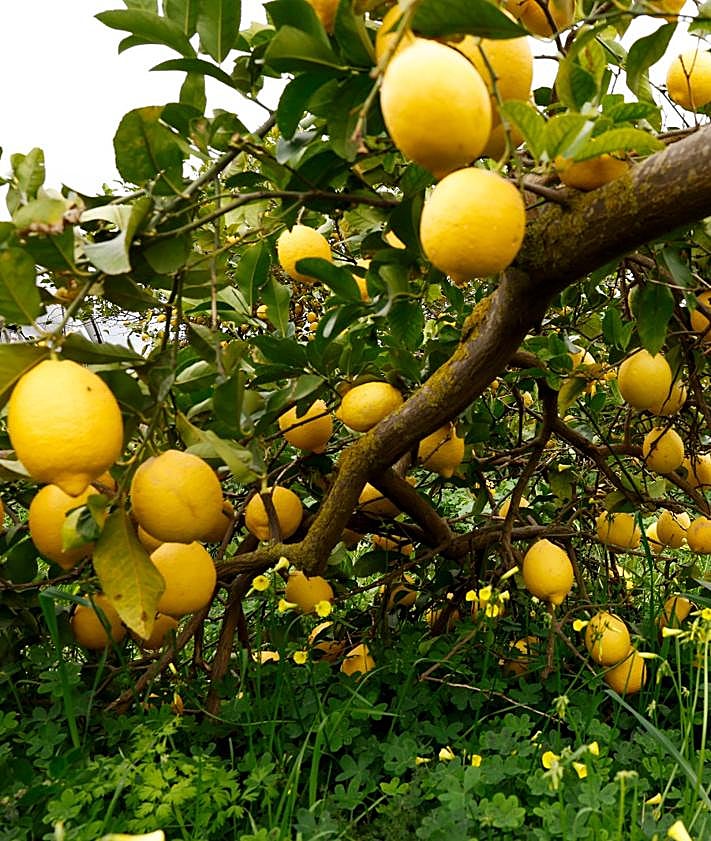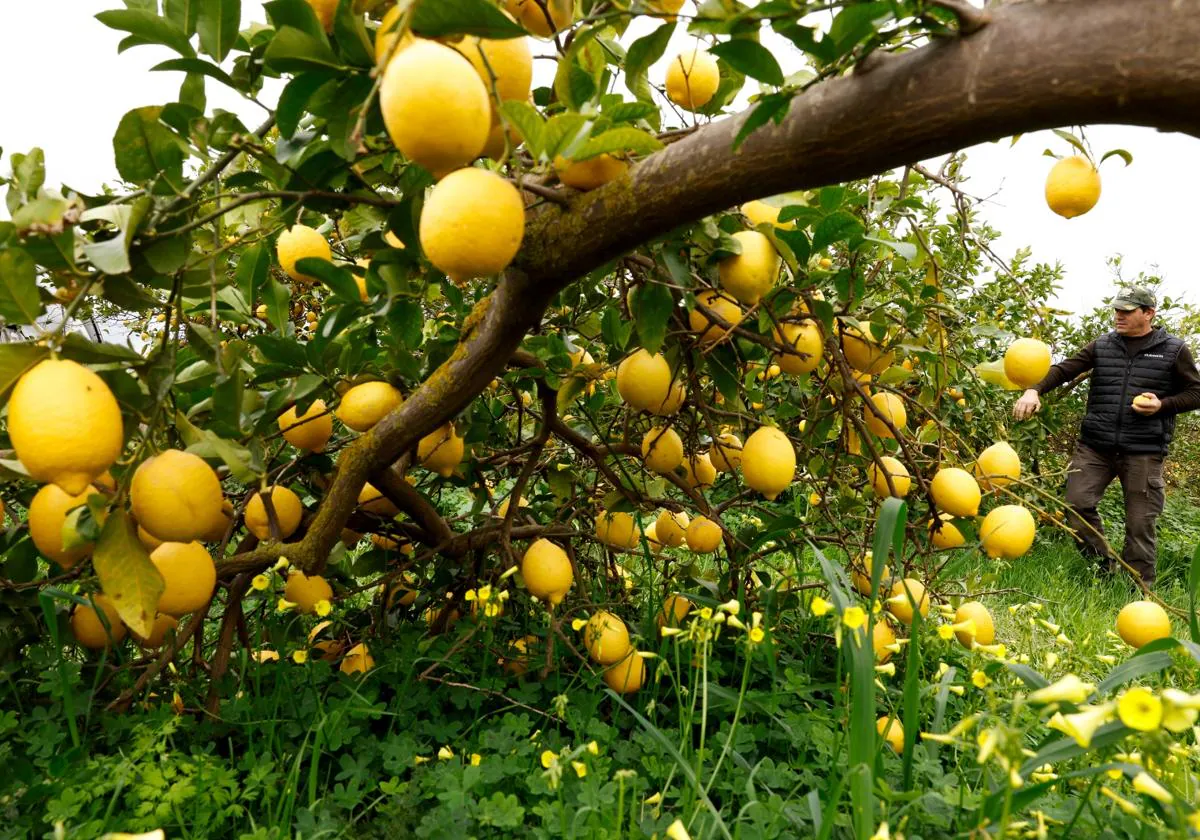Lemon disgrace: from just ten cents off the tree to more than two euros in the supermarket
The current low price is stifling growers in the Guadalhorce valley, who prefer to give their produce away rather than sell at below cost
Matías Stuber
Malaga
Friday, 9 February 2024, 18:12
Coming in from Malaga, the road to Torrealquería in Alhaurín de la Torre in the Guadalhorce valley weaves around bends that give way to tracks that divide the numerous farms in the area. The sun, on this last day of January, looks more like a candle. A curtain of clouds tinges the day in a dull grey. A scene that also serves to illustrate the mood of Sebastián Ramos, one of the many farmers in the Guadalhorce valley who make their living from growing lemons. "Used to make a living," he grimaces with a face that shows weariness and indignation at a situation that he considers "unsustainable".
Unsustainable refers to the value chain from the time the produce is harvested by the farmer until it ends up on the supermarket shelf. For the consumer, a kilo of lemons costs around two euros. The last amount Ramos, who is 49 years old and has four children to feed, was offered was ten cents. A negative record. Producing a kilo of lemons, he says, costs 35 cents. No farm can survive this way.
The Ramos estate has five hectares and 2,000 lemon trees. The mild climate of the Guadalhorce valley is ideal for growing citrus fruit. The quality of the lemons would be superior to those of Valencia or Murcia. A walk around the estate could form part of a day of agrotourism. The wind makes the leaves rustle and the nose is gradually filled with the characteristic scent of orange blossom.
But the farmer nips any romanticism in the bud and refers to a harsh reality: "Last year, I was paid 50 or 60 cents a kilo for these lemons. I sold them to the sales people who then, in turn, sold them to the large supermarkets." What is happening now, he says, is unusual: "Ten cents a kilo? They are taking bread away from my children."
For Sebastián Ramos, as for many farmers in the Guadalhorce valley, the time has come to take drastic steps to draw attention to the emergency they are suffering. The result can be seen with a simple glance at the horizon. Where the trees should be properly trimmed and ready for next season's harvest, everything is littered with lemons. Some fall to the ground like ripe fruit. "I'd rather leave it like this than be robbed," he insists.
No saving on labour
Even if they wanted to, farmers can't even save on labour. "Even if you don't sell them, you have to pick the lemons. If you don't, the tree attempts to re-asorb the liquid in the fruit and there would be no flowering for a new crop," Ramos explains.



How did this situation come about? For this farmer, it can all be summed up in one word: greed. "The large supermarkets are making more and more money and we don't even have enough to eat," he complains. More than a thousand families in the Guadalhorce valley are suffering from what this farmer does not hesitate to describe as blackmail: "They come to you and tell you to take it or leave it."
To reach this point of feeling that there is no future, he adds, is especially frustrating after farmers in the area had made a great effort in recent years to go organic. What would be the point of all the investment made in sustainable concepts, in perfecting irrigation to save water in times of drought?
Lemon, like any foodstuff, is part of a sector in which speculation has always existed. Prices were good at the beginning of the season and at the end, when the fruit was, in reality, already too ripe. It is a business that would never have made a fortune, but the pressure they are under this time around has led to enormous frustration which is evident in this tour.
The journey continues in the car and, after leaving the road and entering another track, Alfonso Ramírez greets us. The dust from under the wheels gradually blows away.
Alfonso Ramírez, 58, is another farmer who has gone from frustration to anger in recent weeks. A fortnight ago, together with other colleagues, he was in central Malaga giving away lemons to anyone passing by. "The distributors and supermarkets are making a fortune and we're struggling," he complains. He claims that he has been growing lemons for as long as he can remember, he is a "country boy". Never before has he not made enough to cover his expenses. "Not even when there were pesetas," he remarks.
The ten to 15 cents that farmers are being offered contrasts with a visit to the supermarket. The price per kilo, depending on the store and whether or not a temporary offer is applied, can be over two euros. The margin between what is paid at source and what the customer has to pay is enormous.
How is it justified? Who keeps the profit? Farmers point to wholesalers and supermarkets. Wholesalers and supermarkets point to an "increase in costs" which affects the whole production chain, from packaging to transport. They also point to the oversupply in the market due to the entry of lemons from non-EU countries.
The secretary general of growers association Unión de Pequeños Agricultores, Francisco Moscoso, confirms that the profit stays with the "wholesalers and the large supermarkets". "This is the upwards chain. The farmer is the first link. The large supermarkets go directly to him or buy from him via a supplier. There are no other hands in the process. What the intermediaries and the supermarkets are doing now is taking advantage of the increase in costs to play with the margins. This supposed loss is passed on to the consumer. In the end, it is the farmer and the consumer who pay," he laments.
Unfair competition
Moscoso admits that the entry of produce from outside the European Union is causing damage and asks the government and the Junta de Andalucía to take measures to prevent, for example, lemons from South Africa being sold in a supermarket in Malaga while others are rotting in the Guadalhorce valley. He also refers to the food chain law, which came into force on 1 January. In theory, no intermediary or store can offer farmers contracts below the cost of production.
In practice, the lemons of the Guadalhorce valley are doomed to end up on the ground.
